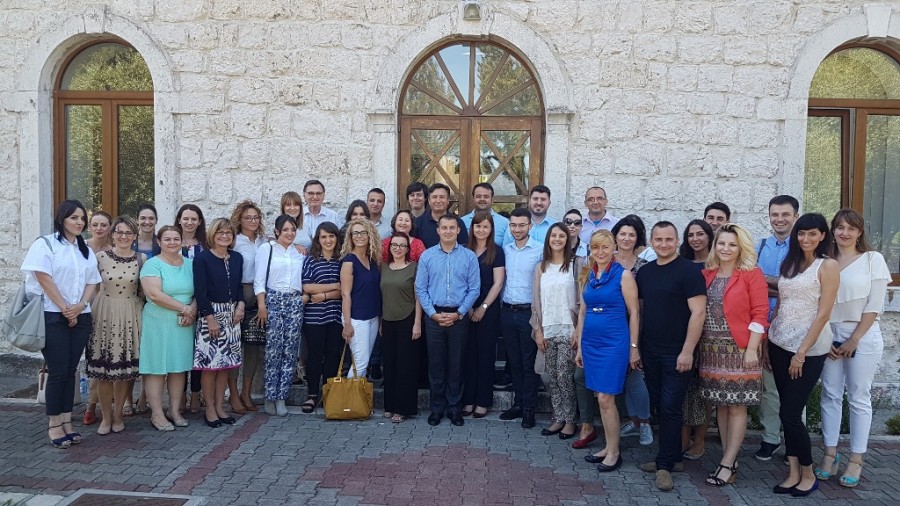
ReSPA Summer School on Accession Negotiations with the EU - Chapters 23 and 24
With the intention of improving the knowledge and professional skills of public servants working on EU affairs, and in order to offer them a new opportunity to network with colleagues from the Western Balkans region, ReSPA organized Summer School on Accession Negotiations with the EU. Special focus was given to the Accession Negotiations' Chapters 23 (Judiciary and Fundamental Rights), and 24 (Justice, Freedom and Security).
Lecturers at the Summer School were high level professionals and ReSPA experts from Albania, Bosnia and Herzegovina, Croatia, Montenegro, Serbia and the EU academic institutions: College of Europe and EIPA. More than 30 participants of the Summer School came from all ReSPA Members and Kosovo*[1]. They were senior and middle level professionals actively taking part in the European integration processes, from central EU coordination institutions, ministries in charge of foreign affairs, justice, internal affairs, public administration, finance, offices of Prime Ministers, and from the offices of Chiefs of the SAA/Accession Negotiation Teams.
„When you are a civil servant, it is most important that you cultivate your critical mindset. The EU accession doesn't matter. What matters is the way towards accession. It is the effort that you are going to undertake and collective intelligence you are going to put in the process that will make you ready or not. The key for being ready is education, education, and education. It is not just acquiring new techniques, new technologies, new competencies; it’s far more than that. It is about making sense of ethics for participating in a collective effort, exchange with others, helping each other, living together despite racial, ethnic, religious differences... in an open and competitive society“, said Pierre Defraigne, Executive Director of the Madariaga - College of Europe Centre, in his keynote address to the Summer School participants.
According to the participants, the Summer School helped in gaining a deeper understanding of the processes of change in the EU, and their implications for the enlargement policy, as well as better understanding of the Chapters 23 and 24 on the basis of experiences of Croatia. Participants also learned about the current state of affairs regarding judiciary and fundamental rights, justice freedom and security, in each the of aspirants to EU Membership across the Western Balkans. Through discussions on common problems, they broadened their outlook of similar situations and challenges faced by their peers.
[1] *This designation is without prejudice to positions on status, and is in line with UNSCR 1244 and ICJ Advisory opinion on the Kosovo Declaration of independence



